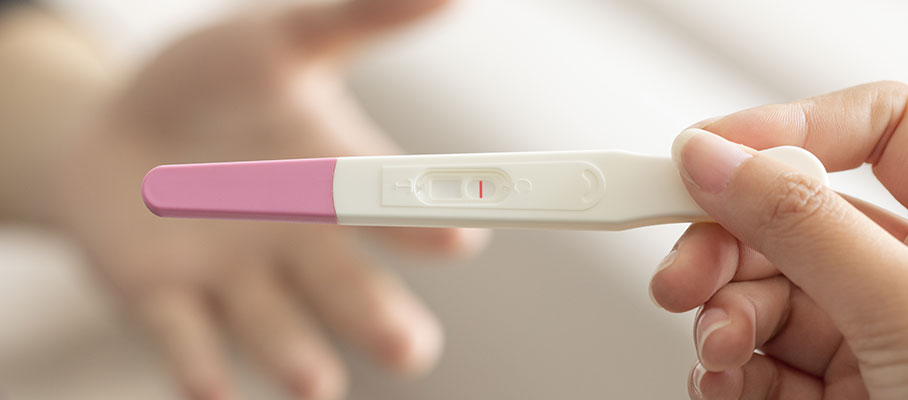Disease
Infertility in Women: Causes, Diagnosis and Prevention
5202 Views
0

Scientifically speaking, infertility is a common reproductive condition defined by the inability to have a successful clinical pregnancy after at least a year of regular unprotected sexual intercourse. It is becoming more common worldwide, especially in many urban areas where women are planning their first babies at older ages. At least 10% of women have some kind of infertility.
Infertility can be of two types – primary and secondary. The term primary infertility means that a woman has never conceived and secondary infertility means that the woman has experienced a pregnancy before and unable to conceive later. While infertility causes can be difficult to diagnose, it is very crucial to get tested for regular health updates to stay in the know. Book an exclusive women’s health package here.
Causes of infertility in women
There are varied possible causes of infertility in women. Some possible causes of female factor infertility may include:
Ovulation disorders
Infrequent or no ovulation at all accounts for most cases of infertility. Several reasons such as hormonal imbalances, thyroid conditions, pituitary tumors, severe stress, substance abuse and a past eating disorder can affect ovulation.
- Polycystic ovary syndrome (PCOS), the most common cause of female infertility, causes a hormone imbalance, which affects ovulation.
- Hypothalamic dysfunction can significantly affect female fertility. Follicle-stimulating hormone (FSH) and luteinizing hormone (LH) produced by the pituitary gland are responsible for stimulating ovulation each month. Emotional distress, extreme high or extreme low body weight, or a recent significant weight gain or loss can affect production of these hormones and cause ovulation disorders.
- Premature ovarian failure or primary ovarian insufficiency occurs when the ovaries stop working normally before the age of 40. The ovaries don’t produce eggs and normal amounts of the hormone estrogen and this condition often leads to infertility.
- Hyperprolactinemia, excess production of prolactin by pituitary gland, can reduce estrogen production and lead to infertility.
Uterine causes
Several uterine causes can prevent egg implantation or increase the risk of miscarriage. Benign polyps or fibroids can block fallopian tubes or interfere with egg implantation, affecting fertility. Polyps and fibroids can form on their own at any time, whereas other uterus abnormalities, such as an unusually shaped uterus, are present at birth.
Tubal factors
Blocked fallopian tubes block the passage of the fertilized egg into the uterus and prevent sperm to get to the egg. The most common cause of tubal infertility is a pelvic inflammatory disease, an infection of the uterus and fallopian tubes usually caused by chlamydia, gonorrhea, or other sexually transmitted infections.
Cervical causes
Cervical causes may include cervical stenosis (narrowing of the cervix) which can be caused by an inherent malformation, cervical surgical procedure, or damage to the cervix. Some women may have a cervical condition in which the sperm cannot travel through the cervical canal due to abnormal mucus production.
Unexplained infertility
In some instances, the cause of infertility is never found. A combination of various minor factors in male and female partners could cause unexplained infertility.
Diagnosis of infertility in women
Your doctor will evaluate your physical symptoms and ask for laboratory and radiological tests. If you or your partner has known fertility problems, or if you have a history of irregular or painful periods, unusual vaginal bleeding or discharge, pelvic pain, cancer treatment, endometriosis, or any past pregnancies miscarriages, pelvic infections, or sexually transmitted infections, and you are facing problems with conception, do consult your doctor for a timely diagnosis.
Some tests your healthcare provider will run to diagnose infertility may include:
Ovarian function testing
Ovarian reserve test helps to determine the quality and quantity of eggs available for ovulation. A blood test for progesterone (a hormone produced after ovulation) can also signals ovulation. Other hormone levels, such as thyroid, pituitary and prolactin, also might be checked.
Hysterosalpingography (HSG)
It is a radiological procedure used to evaluate tubal patency. A dye is injected into the uterus through the cervix and simultaneously X-Ray pictures are taken to see how the dye moves through the fallopian tube. Spillage of dye into the abdominal cavity indicates that tubes are patent
Laparoscopy
It is a minimally invasive surgery that involves the insertion of a small monitoring instrument called a laparoscope into the abdomen to visualize abdominal and pelvic organs. Using laparoscopy, the healthcare provider can diagnose blockages of the fallopian tubes, endometriosis, scarring and other problems with the ovaries and uterus.
Transvaginal ultrasound
This test is done by inserting an ultrasound transducer into the vagina. It allows a better view of organs like the uterus and ovaries. It is used to detect ovulation in females and any abnormality in uterus and adnexa.
Saline sonohysterogram
Sometimes also called a saline infusion sonogram (SIS) is used to look at the lining of the uterus and examine for polyps, fibroids or other structural abnormalities.
Hysteroscopy
This test is indicated for intrauterine space-occupying lesions detected on a hysterosalpingography. In this test, a hysteroscope is inserted into the vagina through the cervix. The healthcare provider moves it into the uterus to examine the inside of the organ.
Genetic testing
Chromosomal karyotyping is used for suspected genetic disorders that may be causing infertility.
Prevention
Most forms of female infertility cannot be prevented. However, it is possible to control the risk factors that may contribute to infertility.
Lifestyle modifications may include:
Maintain a healthy weight
Weight management is an important factor in preventing and treating infertility. Underweight and overweight women ovulate less regularly compared to women of a healthy weight.
Quit Smoking
If you smoke and are thinking about getting pregnant soon or in the future, quit now. As tobacco has multiple negative impacts on your fertility and your general health. Smoking can also affect the health of a developing fetus.
Avoid alcohol
Heavy alcohol use can lead to decreased fertility. And any alcohol use can affect the fetus’s health. If you're considering pregnancy, avoid alcohol. Limiting alcohol will have a beneficial impact on a couple’s ability to conceive.
manage stress well
Some studies have shown a possible connection between stress and infertility. It is found that the more stressed the woman is prior to or during treatment, the lower the pregnancy rates. Finding the time for leisure and enjoyment is a healthy step to reduce stress levels and improves your physical and emotional health.
Develop the habit of exercise
Moderate exercise can help in bringing regularity to your menstrual cycle and improve your overall health. But excessive intense exercise can disturb the menstrual cycle and results in decreased ovulation.
PRACTICE safe sex
Practice safe sex to avoid sexually transmitted diseases, such as chlamydia and gonorrhea.
The final word
Infertility can cause psychological-emotional stress disorders in both men and women. But being diagnosed with infertility doesn’t mean that your dreams of having a child have come to an end. With proper medical assistance, a number of infertile women will eventually be able to have a child. The right treatment will depend on factors, such as age, the cause of infertility, and off course your personal choices. If a fertility problem cannot be treated, your doctor may suggest considering donor sperm or eggs, surrogacy, or adoption.























 WhatsApp
WhatsApp